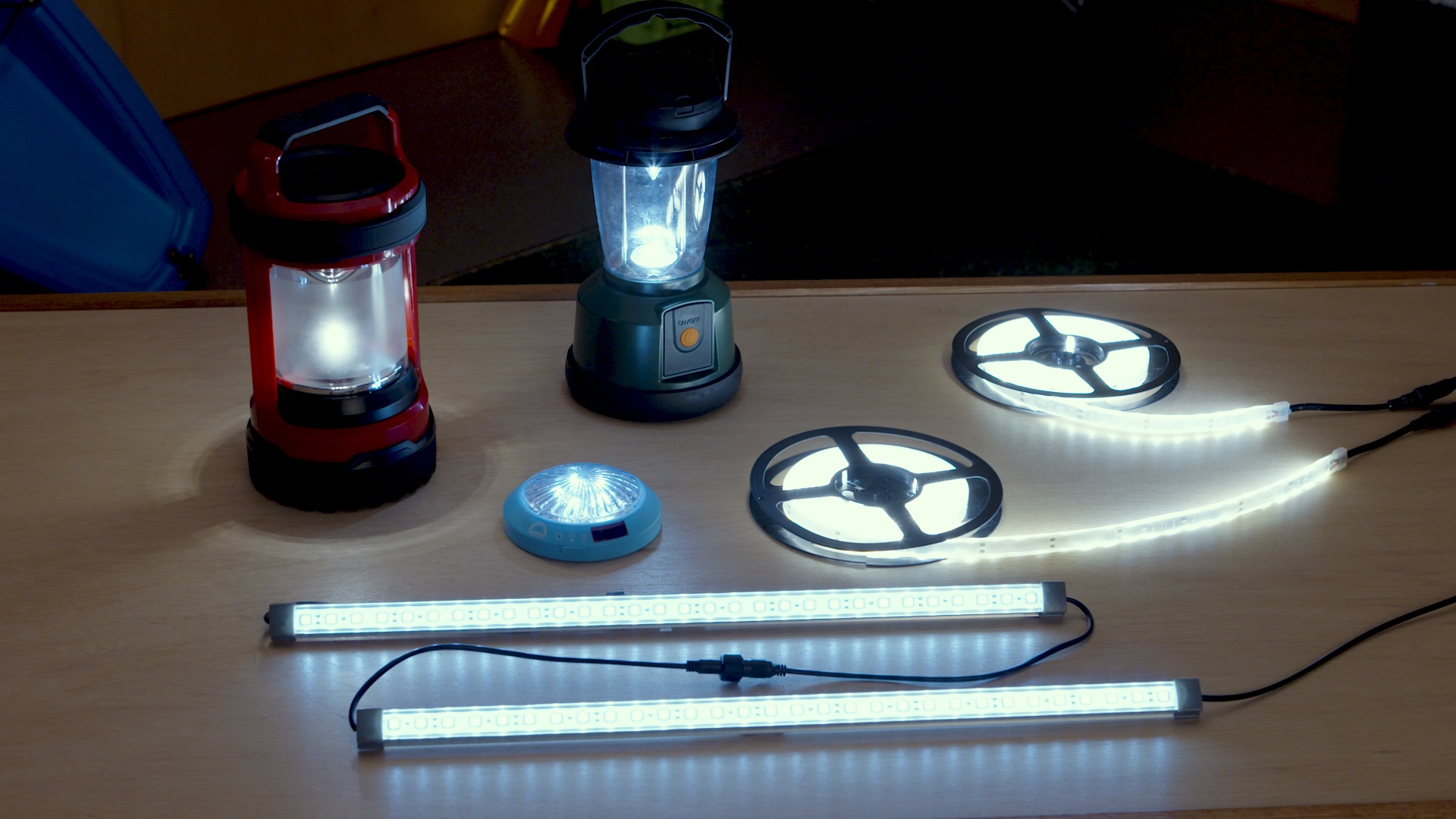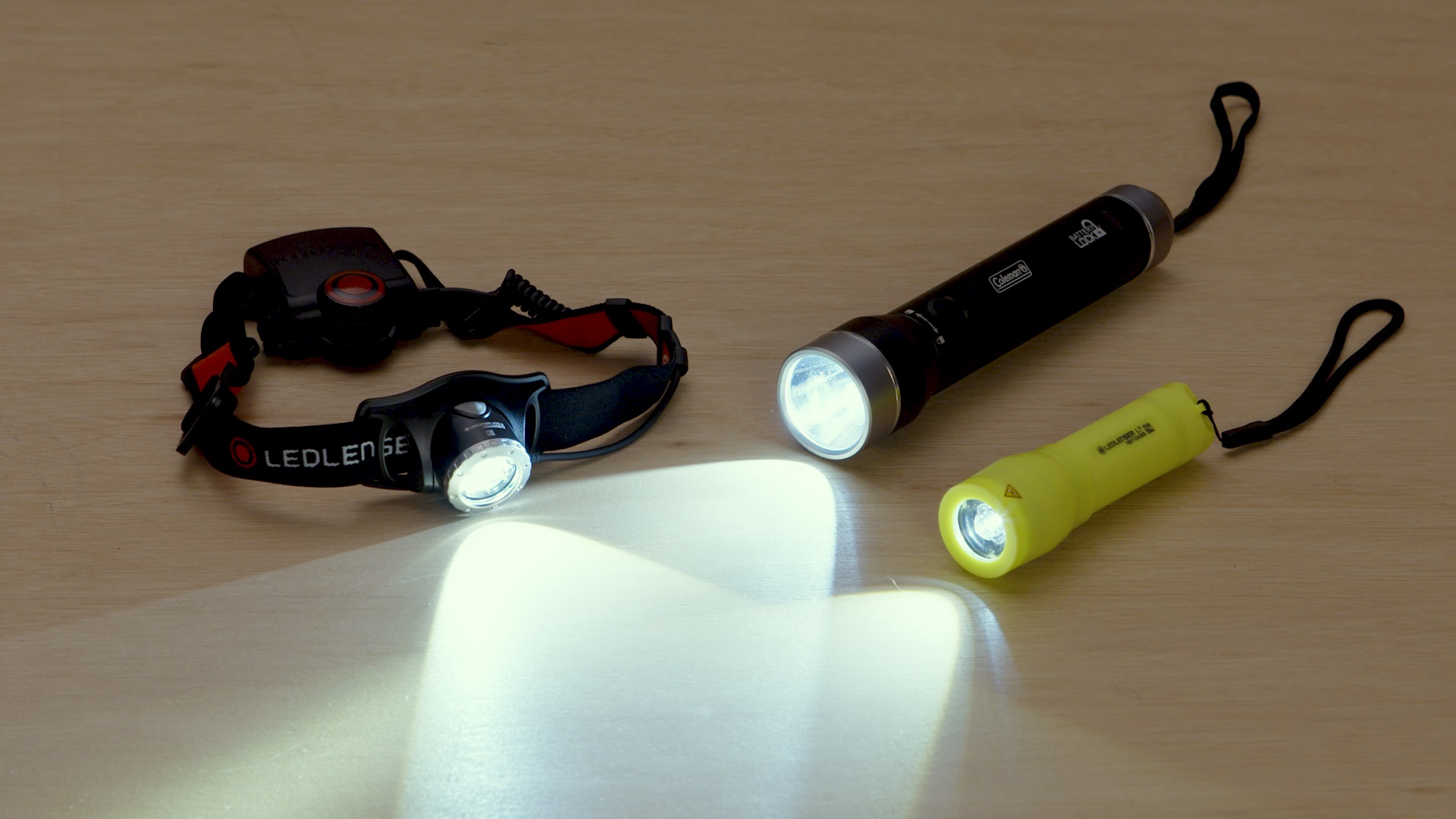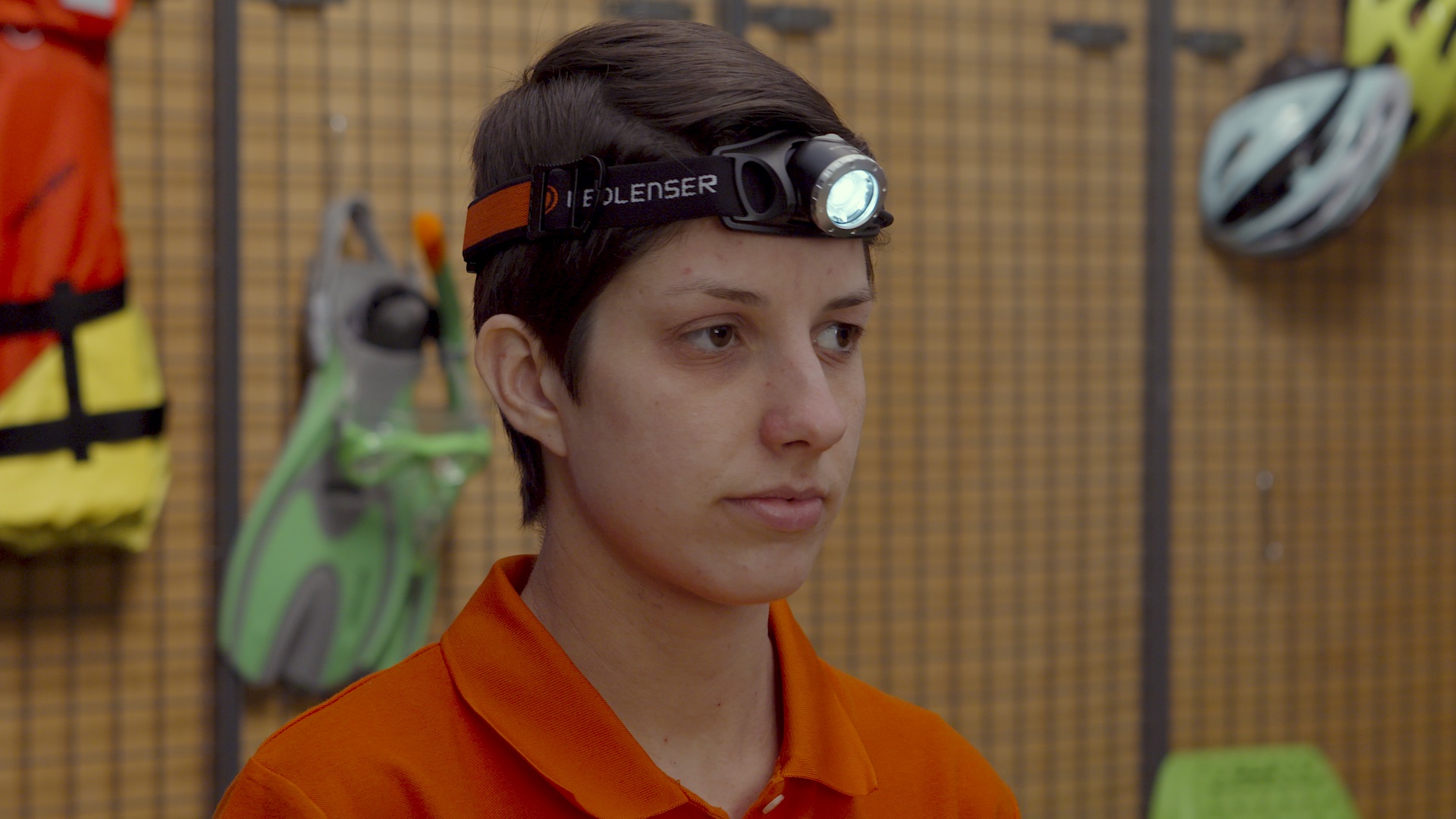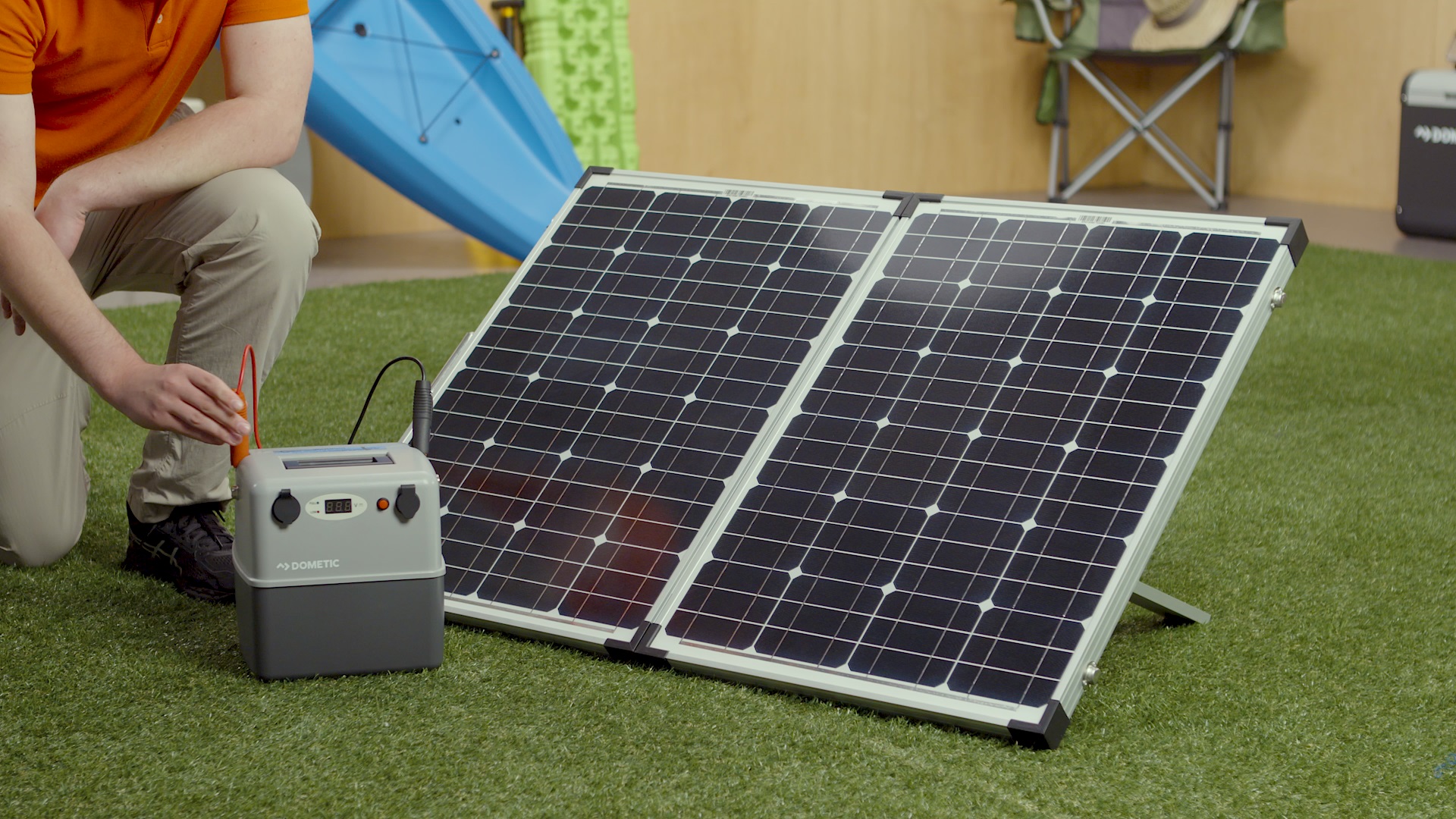| Your browser is not supported. | ||
|
Please browse our site using any of the following options:
| ||
How To Choose The Best Lights For Camping
When the sun goes down and all is dark, you need the right light to enjoy the night. Whether you're camping, fishing, hiking or walking the dog, good lighting is essential for safety, comfort and fun. This Buying Guide sheds light on how to choose the best lighting so you're in the know - not in the dark.
Quick links:
- What are the best camping lights?
- How will you use your camping lights?
- Different types of camping lights
- Brightness, colour & beam of camping lights
- Power sources for camping lights
- Toughness of camping lights
- Comfort & convenience
- Determing the quality of a camping light
- How much are camping lights?
What are the best camping lights?
Everyone's different, and like so many things in life, what's best for one person might not be best for the next. The best lighting for you depends on your particular needs:
- What you're using it for and for how long at a time (hiking, fishing, rock climbing?)
- Where you'll be using the light (in one place, while you walk around, or both?)
- If you want to light the whole area or just what's right in front of you?
- How far into the distance you want to be able to see?
- If you have a car with a 12V battery you can use to power the light?
- What conditions the light will be used in (cold weather, snow, rain, underwater?)
- How often you'll be camping and for how long (on weekends only or for a few weeks?)
- How long you want it to last (for a few short trips or for many years of camping?)
How can you light up your camp site?
Working out which lighting to buy is easier when you break it down into these seven steps:
1. Use
First, think about how you'll be using the lighting.
Will the light be used for:
- An area - inside your tent, outdoor shelter, or to light up the campsite?
- A person - to light your way as you walk, cook, read, fish or get dressed?
If you're going camping, you'll probably want both kinds of lighting:

2. Types
What type of lighting do you need?
Personal lights:
- Torch - a handheld light that shines a beam of light in the direction you point it.
- Headlamp - a light strapped to your forehead so you can do things with both hands.
- Light sticks - a light, thin cylindrical light in the shape of a stick that's easy to hold.
Area lights:
- Lantern - casts light right around in all directions so you can see 360 degrees.
- Strip light - bright LED lights in a waterproof strip you can cut and stick anywhere.
- Tent light - designed to be used inside camping tents for reading, dressing etc.
- BBQ light - a light that attaches to the BBQ so you can see clearly when cooking.
- Flood light - an extremely power ful light that lights up the whole campsite area.
Extra lights:
- For safety reasons, it's important to have more lights than you need.
- One light becomes none if it isn't working, so you'll need a backup.
- For ultra-light camping you should have a minimum of:
- one head torch
- a standard torch
- spare batteries
- For a family camping trip:
- a lantern
- a torch for each person
- a head torch for tasks
- spare batteries
- Tell everyone where the spare lights are (e.g. tent pockets) in case of an emergency.

3. Light
When you turn on a camping light, the light you see is a combination of three things:
Brightness
- The brightness of light is measured in lumens.
- The more lumens a light has, the brighter it is.
- LED lights are the brightest, most efficient and long lasting.
Colour
- Different lights produce different light colours.
- The light colour can be blue, white, yellow, red.
- Insects are more drawn to blue than other colours.
- LED lights with higher K numbers are more blue.
- Fluro lights usually give off a white light colour.
- Gas power ed lights produce a warm, yellow light.
- A red light gives you better visibility in the dark.
Beam
- The narrower the beam the further it shines.
- The wider the beam the more you see around you.
- The beam distance tells you how far the light projects.
- A long, narrow beam is perfect for night wildlife spotting.

4. Power Source
Next, think about what you'd prefer the light to be powered by:
Battery
- The majority of camping lights are battery powered.
- When comparing different lights, look at:
- What batteries it uses and how much they are to replace.
- How long you can use the light for before the batteries die.
- Whether you might want a rechargeable lithium-ion battery:
- They can be more cost effective than disposable batteries.
- You plug them into a power point or car to charge.
- Their run time is shorter than disposable batteries.
- Find out how long the battery takes to charge.
Also keep in mind:
- Brighter lights kill batteries faster, so only get the minimum brightness you need.
- If the light has different light colour options, using the red light uses less battery.
- As the battery dies it can reduce the beam distance (or the light might just stop).
- Lithium-ion batteries are best suited to colder weather.
- Always keep batteries in the same place so everyone knows where they are.
- A 4WD's 12V of power can be used to power a flood light for the whole campsite.
Solar
- Solar panels collect energy from the sun during the day, which power s the light at night.
Gas
- Gas can be used to power handheld camping lanterns.
- These lights usually use the same gas you use for cooking.
- For safety reasons, gas lights should only be used outside.
- Gas lanterns get hot so always handle them with care.
Wind-up
- The light has a handle you wind around which generates the power the light needs.
- Turning the handle takes a bit of time, so it doesn't give you light instantly.
Hybrid
- These lights have two power source choices: wind-up or batteries/plug-in power.
5. Toughness
Will the light still work if it gets wet or is dropped?
Water exposure:
- Some lights are water resistant and some are waterproof.
- The IPX ratings tell you how waterproof they are.
- A light with a rating of IPX7 will be ok if submerged in water.
- A water-resistant light will be ok in the rain but can't be submerged.
How tough the light's casing is will depend on the materials it's made from:
- Plastic - lightest and cheapest but most easily damaged if not shock-resistant.
- Rubber - lighter than metal, water proof and absorbs the shock if dropped.
- Metal - steel (strong but heavy), aluminium alloy (lighter), titanium (light and strong).

6. Comfort & Convenience
Different lights have different features for extra comfort and convenience:
- Modes - some lights have different brightness, colour and beam settings.
- Controls - some lights have a dimmer, and others come with a remote control.
- Hook - having a hook on the light makes it easy to hang up in your tent or shelter.
- Lock - some lights have a lock so it doesn't turn itself on and waste the battery.
- Weight - some lights are a lot lighter than others so won't be heavy to carry.
- Tilting - some headlights tilt so you can move the light instead of your head.
- Strobe - a flashing light setting that helps people find you in an emergency.
- Straps - some headlamps have top and side straps that rock climbers need.
7. Quality
When you're weighing up which light to buy, think about quality versus cost:
- Plastic lights are the cheapest but they won't last as long if dropped.
- Torches are usually cheaper than headlamps but you have to carry them.
- 5-year-olds will love an animal headlamp but will they still when they're 8?
When it comes to how much you should spend on a camping light:
How much are camping lights?
Anaconda camping lights range from $5 to $180, and the majority are $20 to $100.
When you go to the camp lighting section on the Anaconda website, you'll see tick box filters down the left hand side of the page. Using these filters makes working out which lighting to buy easier and faster because you can choose to filter the lights you see by:
- Price - so you only see lighting that's within your budget on the page.
- Deal - so you only see all the lights that are on sale or at clearance prices.
- Categories - so only headlamps, torches, lanterns or fishing lights are shown.
- Rechargeable - so you only see lights that have a rechargeable battery.
- Brand - to find specific brands like Coleman lights orBlack Diamond headlights.
Other Camping & Hiking Essentials
Check out Anaconda's range of Camping & Hiking products available online or visit your local store.